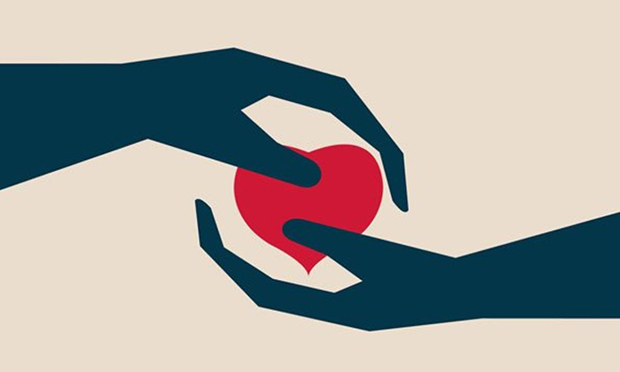How Cazenove came together against Covid-19

There was panic in the air during those March days when the virus spread wild and loose through the city.
Londoners retreated into their homes as rumours swilled around the scientific fact to create a heady concoction of fear.
Yet as doors closed, streets emptied and trains stopped, community organisers rushed to print flyers, distribute phone numbers and reach out to the people around them.
Within days of the lockdown, close to 200 volunteers in Cazenove alone had joined a mutual aid Whatsapp group offering to help their neighbours.
“I didn’t really know what this emergency was going to look like, but through the mutual aid groups I felt we could do something proactive,” said Gabriel Martin, a Canadian resident who quickly signed up.
“It’s given me the peace of mind to know that there is somewhere that my neighbours can reach out to.”
In for the long haul
With months of potential lockdown stretching ahead, Cazenove community organisers realised that vulnerable people – and the goodwill to help them – had to last for a marathon, not a sprint.
In addition to the vulnerable and elderly, the volunteers began to get calls from the furloughed, the self-employed, and those on zero-hours contracts who could no longer afford to fill their stomachs.
Hunger, like the virus itself, had an incubation period. If Cazenove was to flatten the curve of food poverty, they had to get organised.
An alliance of charities and community groups got involved to help harness the energy of mutual aid and keep volunteers going.
At the centre, N16 Boilerhouse offered itself as a hub for the operations: keeping volunteer data and secure and turning its phone line to be a one-stop-shop for the needy.
Claire Ferrigi, the Boilerhouse’s community engagement and facilities managing director, divided 170 mutual aid volunteers street by street into 15 micro-community sub-groups so that no-one would have to go far to give help.
They responded to calls from hungry parents of hungry children, friends concerned about loved ones they couldn’t reach, and doctors’ surgeries worried about vulnerable people they were unable to check in on.
They began to coordinate food donations from Morrisons in Stamford Hill and ‘big shops’ made by ordinary people for the food bank.
“I can’t believe how amazing the community has been. They are willing to do anything,” said Ferrigi.
Fill the gaps
To complement the street-by-street micro-communities of mutual aid, Clapton Commons’ community builder Marcus Duran began rooting out the gaps where needy people still went hungry.
That meant reaching out to the North London Muslim Centre, the foodbank at St Thomas’ church and building connections in the Hasidic community.
“We are not trying to reinvent the wheel,” he said. “But we have had to create new relationships that were not there before, to get food to those that need it. We had to build trust.”
The Commons has long used food to bring people together and in this crisis it has been no different.
Bread donated by a Kosher bakery on Oldhill Street piled up on their table, but did not stay for long before being parcelled out to families who otherwise would not eat that day.
Made in Hackney, a community kitchen linked to Clapton Commons raised over £73,000 in an emergency appeal to make 33,000 free meals over three months of the crisis.
Taking the lead
Mutual aid providers were grateful for the resources and expertise of experienced community organisers.
“Everybody has great intentions, but there was so much challenging negotiation that needed to happen. It would be so much harder to do this without the Boilerhouse,” said Martin.
Zoë Herron-Coleman, a full-time worker and single parent who mobilised the Stamford Hill Estate residents’ association to bring mutual aid, agreed: “There’s only so much that can be embedded in goodwill,” she said.
“We were trying to create a safe network so we had neighbours from the estate delivering food – known faces – but rather than it just being a well-meaning group of people.
“The Boilerhouse gave a name, a place people can go, and accountability.”
Built to last?
After the coronavirus peak has passed, rumours are once more spreading through Hackney’s streets about when and in what form the lockdown will loosen.
“We’re starting to put our heads above the surface and ask, ‘What will this look like in three months time?’” said Duran.
“Our organisations have collectively been here for many years, and we will be here for many years to come.”
Nobody can say yet whether the networks of generosity that mutual aid, the Boilerhouse, Clapton Commons and others have built in Hackney will survive the borough’s return to normalcy.
“We’ll just carry on doing that whilst we are needed. That’s what we do in the grassroots, we just get on with it,” said Ferrigi. “We hope there will be a legacy.
“At the very least, we’ll all meet up in the pub afterwards!”
